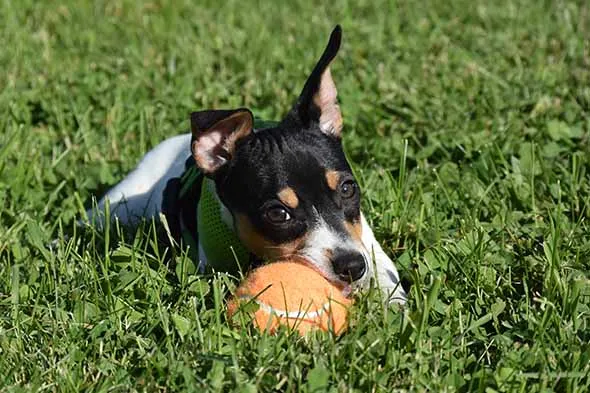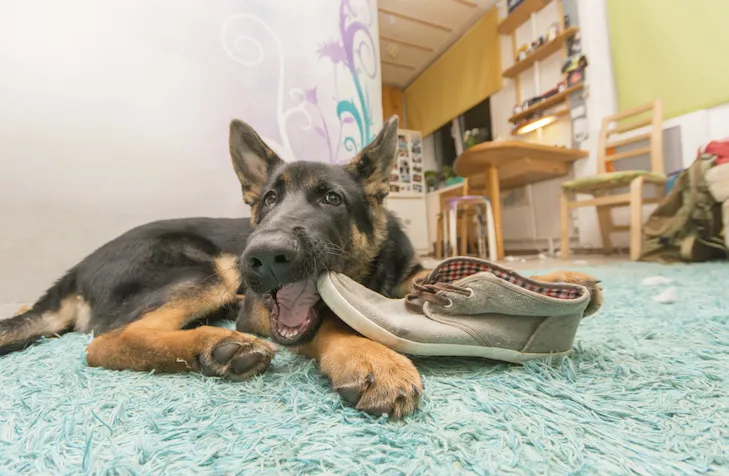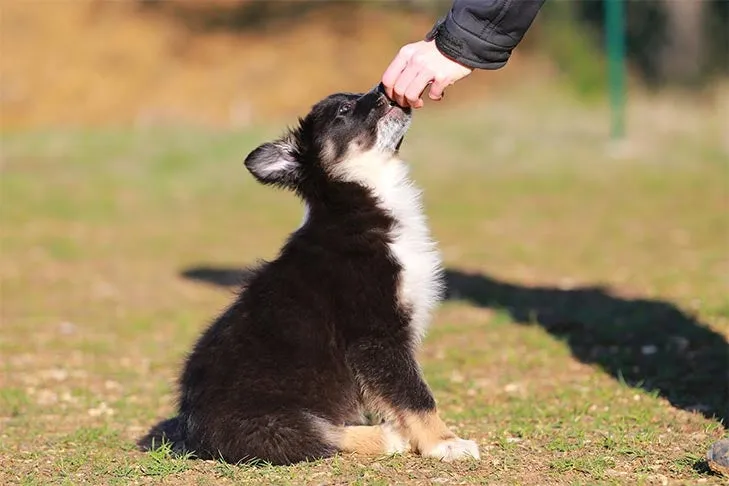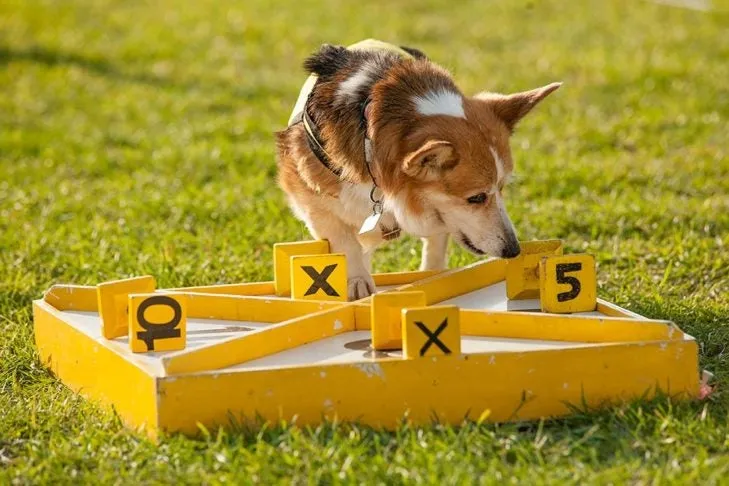Bringing a new puppy home is an exciting time, but it also comes with the responsibility of guiding them through crucial developmental stages. One of the most fundamental aspects of puppy care, and often a challenge for new owners, is teaching appropriate chewing habits. Puppies naturally explore the world with their mouths, and chewing plays a vital role in relieving the discomfort of teething. However, without proper guidance, your cherished belongings can quickly become casualties. Understanding the Best Things For Puppies To Chew On and how to manage this instinct is key to a harmonious home and a happy, well-adjusted pup. This guide will provide ten essential tips to help you establish safe chewing behaviors, ensuring both your puppy’s safety and your peace of mind.
1. Provide a Variety of Safe and Appealing Chew Toys
Puppies have an innate need to chew, so it’s paramount to offer them a wide selection of appropriate chew toys. These toys are specifically designed with puppy safety and dental health in mind. If you don’t provide attractive alternatives, your puppy will invariably find their own “toys” – often your furniture, shoes, or other household items. When selecting puppy chew toys, consider your dog’s individual personality and chewing style. A “power chewer” might quickly destroy softer rubber toys, whereas a gentle puppy might prefer a more pliable texture. Look for durable options made from safe materials. Exploring [toys for 8 week old puppy](https://dogcarestory.com/toys-for-8-week-old-puppy/) can help you find age-appropriate options that are both engaging and safe, catering to their early developmental needs. Diversifying the textures and shapes of chew toys can keep your puppy engaged and prevent boredom, directing their natural chewing instincts toward acceptable items.
 Teddy Roosevelt Terrier puppy enjoying a safe chew ball on green grass, demonstrating appropriate chewing behavior.
Teddy Roosevelt Terrier puppy enjoying a safe chew ball on green grass, demonstrating appropriate chewing behavior.
2. Soothe Teething Pain with Frozen Chews
Just like human babies, puppies experience discomfort when their baby teeth fall out and adult teeth emerge, typically before six months of age. This teething phase can be particularly painful for their tender gums. Providing cold or frozen chew options can offer significant relief and comfort during this time. Simple, cost-effective solutions include ice cubes or a wet washcloth that has been twisted and frozen. For more structured options, consider [teething toys for puppies that freeze](https://dogcarestory.com/teething-toys-for-puppies-that-freeze/), which are specifically designed to be chilled and provide extended relief. You can also get creative by stuffing a [best puppy toys for mental stimulation](https://dogcarestory.com/best-puppy-toys-for-mental-stimulation/) with soft kibble mixed with water or low-sodium broth and freezing it. This creates a soothing, long-lasting treat that keeps your puppy occupied while easing their discomfort.
3. Consult Your Veterinarian for Personalized Advice
Your puppy’s first veterinary visit is crucial for discussing many aspects of their health and well-being, and safe chewing options should be high on the list. A veterinarian can provide invaluable guidance tailored to your puppy’s specific breed, age, and anticipated chewing strength. Different breeds have different jaw strengths and chewing tendencies, which impacts the type and durability of chews they can safely handle. Your vet can advise on the suitability of various edible chews, such as bully sticks, which might be appropriate for a strong chewer but too aggressive for a puppy with developing teeth. They can also help you understand potential risks associated with certain materials or sizes of toys, ensuring you select the safest and best things for puppies to chew on for your specific companion.
4. Puppy-Proof Your Home: Remove Valuables and Hazards
Puppies don’t inherently understand the difference between their designated chew toy and your expensive leather shoes or delicate electrical cords. Anything within their reach is fair game, especially if it carries your scent. To protect both your belongings and your puppy, thoroughly puppy-proof your home. This involves securing electrical wires, storing shoes, clothes, and other attractive items out of reach, and ensuring toxic plants or small objects that could be swallowed are inaccessible. By eliminating tempting and dangerous items, you set your puppy up for success and reduce the likelihood of them developing destructive chewing habits.
 Mischievous German Shepherd puppy chewing on a forbidden shoe at home, highlighting the need for supervision and appropriate puppy chew toys.
Mischievous German Shepherd puppy chewing on a forbidden shoe at home, highlighting the need for supervision and appropriate puppy chew toys.
5. Constant Supervision During All Waking Hours
Even with a puppy-proofed home, vigilant supervision is non-negotiable during your puppy’s waking hours. The world is full of novelties, and your couch cushions, table legs, or baseboards can become an impromptu chew toy in an instant. By keeping a close eye on your puppy, you can intervene immediately if they start to chew on something inappropriate. This allows you to gently redirect their attention to an approved chew toy, reinforcing the correct behavior before undesirable habits take root. Consistent supervision is the foundation for teaching your puppy what they can and cannot chew.
6. Utilize Crates or Safe Zones for Unsupervised Times
While constant supervision is ideal, it’s simply not feasible every second of the day. When you need to step away – whether for a quick errand or to take a shower – ensure your puppy is in a safe, confined space. A properly crate-trained puppy will view their crate as a secure den, and it’s an excellent tool for managing chewing behavior. Alternatively, a puppy-secure room or playpen can serve the same purpose. Always provide several appropriate chew toys within this safe zone. For an extra incentive, [best puppy toys for mental stimulation](https://dogcarestory.com/best-puppy-toys-for-mental-stimulation/) like food-stuffed chew toys can be particularly effective, rewarding your puppy for chewing on designated items and keeping them happily occupied. This strategy helps to solidify the positive association with appropriate chews.
 Border Collie puppy in a crate with a food-stuffed chew toy, promoting positive chewing habits and mental engagement.
Border Collie puppy in a crate with a food-stuffed chew toy, promoting positive chewing habits and mental engagement.
7. Master the “Leave It” Command
Teaching your puppy the “Leave It” cue is a life-saving skill that goes beyond just chewing. This command instructs your puppy to disengage from an item they shouldn’t touch or are interested in. It’s invaluable for preventing them from snatching your dropped keys, an inappropriate household item, or even potentially harmful medications. Begin by teaching “Leave It” in a controlled environment, gradually increasing the difficulty and distractions. This command empowers you to manage your puppy’s interactions with their environment, ensuring they focus on the best things for puppies to chew on rather than forbidden objects.
8. Teach the “Drop It” or “Out” Command
If your puppy has already managed to get something inappropriate into their mouth, the “Drop It” or “Out” command is your next line of defense. This cue teaches your dog to release whatever they are holding. The most effective way to teach this is through a positive exchange: offer your puppy a higher-value treat or a favorite toy in trade for the item they have. It’s crucial to avoid chasing your puppy to retrieve an object, as this can quickly turn into an unwelcome game of “keep-away” and reinforce the unwanted behavior. Consistent positive reinforcement will encourage your puppy to readily drop items when asked.
9. Ensure Ample Physical and Mental Exercise
A bored puppy is often a destructive puppy, and that includes destructive chewing. Providing your puppy with appropriate levels of physical exercise and mental stimulation is one of the most effective ways to prevent problem behaviors, including inappropriate chewing. Regular walks, playtime, and structured training sessions can help burn off excess energy. Furthermore, incorporating [outdoor dog toys to keep them busy](https://dogcarestory.com/outdoor-dog-toys-to-keep-them-busy/) and engaging puzzle toys can offer crucial mental enrichment. When a puppy’s physical and mental needs are met, they are much less likely to seek their own entertainment by chewing on forbidden items. This is especially important before crating or leaving your puppy in a safe area; a tired, mentally stimulated puppy will settle down much more easily.
 Energetic Corgi puppy engaging with a puzzle toy to provide mental stimulation, reducing destructive chewing tendencies.
Energetic Corgi puppy engaging with a puzzle toy to provide mental stimulation, reducing destructive chewing tendencies.
10. Avoid Post-Fact Punishment
It’s a common mistake to punish a puppy after discovering they’ve chewed something inappropriate. However, dogs live in the moment. If you punish them even a minute after the “crime,” they won’t associate the punishment with the act of chewing. Instead, they will likely associate it with your unpredictable and scary behavior. This can damage your bond and make your puppy fearful. If you catch your puppy in the act of chewing something they shouldn’t, immediately redirect them to an appropriate chew toy or use the “Drop It” command, followed by positive reinforcement when they comply. Focus on prevention through supervision, puppy-proofing, and providing plenty of the best things for puppies to chew on, rather than reactive punishment.
Teaching a puppy appropriate chewing habits requires patience, consistency, and a proactive approach. By understanding their natural instincts, providing safe and engaging alternatives, and implementing effective training techniques, you can guide your puppy to chew responsibly. Remember to always prioritize your puppy’s safety by choosing the right chew toys and keeping hazardous items out of reach. For further guidance on training and puppy care, Dog Care Story offers a wealth of resources to help you and your furry friend thrive.
